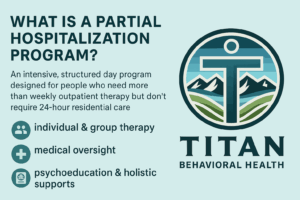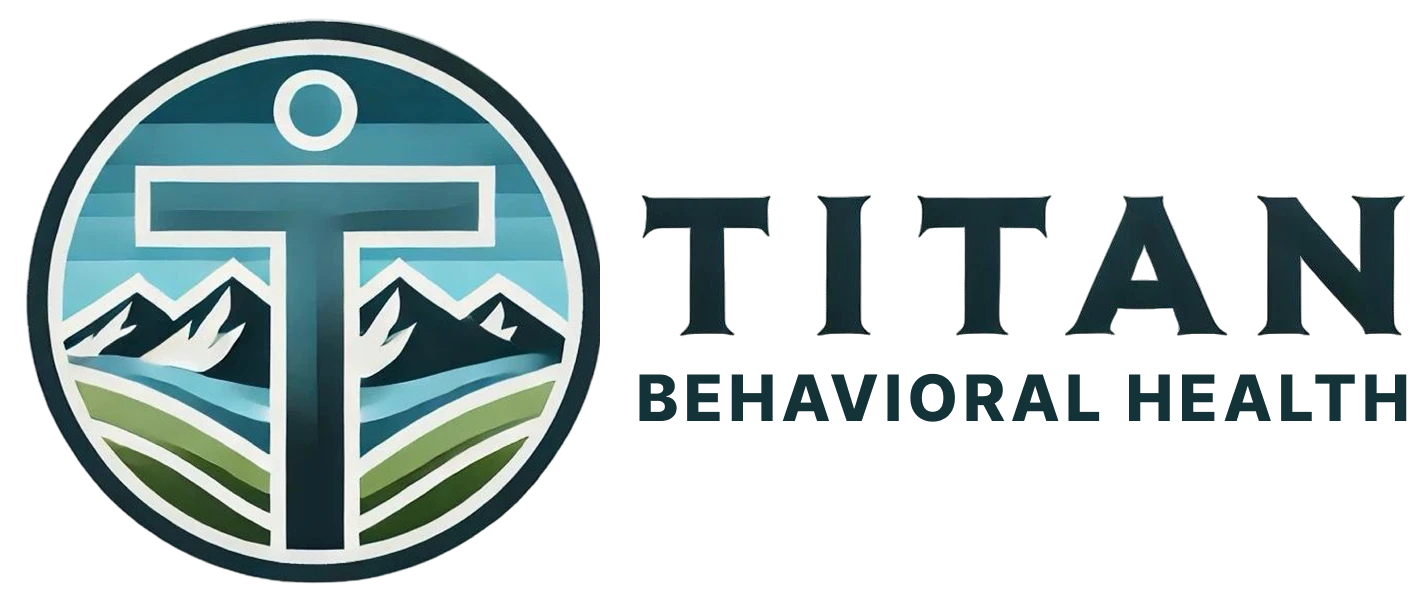Even in early recovery, when you’ve made the brave choice to stop using, the days can feel unbearably quiet. The phone doesn’t buzz the way it used to. The noise you once hated has faded, but so has the sense of belonging. You may find yourself wondering if this is what recovery is supposed to feel like—or if you’ve made a mistake.
A Partial Hospitalization Program can be more than just a treatment option. For many people, it’s a steadying ground—a place where you can receive daily support, learn new coping tools, and begin building connections that help you through the long, sometimes lonely hours. Below, we’ll walk through some of the most common questions people have about PHP, including the addictions it treats and how it can support you in this early, fragile stage of recovery.
What is a Partial Hospitalization Program (PHP)?
A Partial Hospitalization Program is an intensive, structured day program designed for people who need more than weekly outpatient therapy but don’t require 24-hour residential care.
You’ll typically spend several hours each day in a PHP, five days a week. While there, you’ll take part in:
- Individual therapy to address personal challenges, triggers, and goals.
- Group therapy for shared understanding and skill-building.
- Medical oversight to manage withdrawal symptoms, medications, or co-occurring conditions.
- Psychoeducation about addiction, mental health, and relapse prevention.
- Holistic supports, such as mindfulness, nutrition, or movement-based therapies.
The goal is to provide enough structure and professional support to keep you stable while helping you start rebuilding your life outside of treatment.
Which addictions are commonly treated in PHP?
While every program is different, many PHPs—including Titan Behavioral Health’s—regularly work with clients facing:
Alcohol Use Disorder
Alcohol remains one of the most common substances treated in PHP. Some clients arrive after detox to continue their recovery in a safe, supportive setting; others enter PHP after an inpatient stay to maintain structure while adjusting to life outside a residential program.
Opioid Addiction
This can include heroin, fentanyl, and prescription opioids like oxycodone or hydrocodone. PHP provides intensive therapy and medical support, especially for those using medications for opioid use disorder (MOUD) as part of their treatment.
Stimulant Addiction
Cocaine, methamphetamine, and certain prescription stimulants can all lead to intense cravings and emotional crashes. PHP offers daily therapy and coping tools to navigate both the physical and mental challenges of recovery from stimulants.
Prescription Medication Misuse
Misuse of sedatives, anti-anxiety medications, or ADHD medications often requires careful medical oversight and gradual tapering. PHP allows for this kind of monitoring without requiring 24/7 admission.
Polysubstance Use
Many people use more than one substance at a time, intentionally or unintentionally. PHP can address the unique medical and therapeutic needs of treating multiple substances, which often complicates withdrawal and relapse prevention.

Can PHP help with co-occurring mental health issues?
Absolutely. Many people in treatment are facing both addiction and mental health challenges—a combination known as co-occurring disorders or dual diagnosis.
This might mean depression, anxiety, PTSD, or another mental health condition is present alongside addiction. In PHP, your care team will work to address both conditions together. Treating one without the other often leaves people vulnerable to relapse or ongoing emotional distress.
“I thought my depression would go away when I stopped drinking. Instead, it got louder. PHP gave me a space to work on both—without feeling like I had to choose which one mattered more.” – PHP Client, 2023
How long do people usually stay in PHP?
The length of stay varies, but most PHPs run between two and six weeks. Your exact time in the program depends on:
- How stable you feel in your recovery
- Your support system outside of treatment
- Whether you need continued medical oversight
- Your readiness to step down to a lower level of care
Some people may start in PHP and move gradually to an Intensive Outpatient Program (IOP), while others might complete PHP and transition directly to weekly therapy.
What’s the difference between PHP and inpatient rehab?
Think of inpatient rehab as full immersion—you live at the facility, with 24/7 access to care and monitoring. PHP, on the other hand, provides the same therapeutic intensity during the day but allows you to return home in the evenings.
Here’s a quick side-by-side:
| Feature | Inpatient Rehab | Partial Hospitalization Program |
|---|---|---|
| Living Arrangements | On-site, 24/7 | Home in evenings |
| Treatment Intensity | High | High |
| Medical Support | Continuous | Daytime only |
| Best For | Early detox, severe instability | Step-down care, strong home support |
Is PHP right for me?
You might benefit from PHP if:
- You’ve recently completed detox or inpatient treatment and still need daily structure.
- Outpatient therapy alone feels too light for your current needs.
- You have a safe and stable home environment to return to each night.
- You’re managing both addiction and mental health concerns.
- You want to build coping skills and community without being completely separated from daily life.
What does a typical day in PHP look like?
While schedules vary, many PHP days include:
- Morning check-ins with staff and peers to set goals.
- Group therapy focused on relapse prevention, emotional regulation, or coping skills.
- Individual therapy for deeper personal work.
- Educational sessions on topics like communication, boundaries, and health.
- Skill-based activities such as mindfulness, journaling, or art.
- Wrap-up and reflection to prepare for the evening at home.
Can I work or go to school while in PHP?
Because PHP is a full-day program, it can be challenging to work or attend school at the same time. Some clients take a leave of absence, while others adjust their schedules to focus on treatment. The investment in your health now can help make school or work more sustainable later.
How does PHP help with loneliness in early recovery?
The loneliness of early recovery is real—and often unexpected. You’ve stepped away from people and routines tied to your substance use, but you may not yet have built new, healthy connections.
In PHP, you’ll spend time with peers who understand this awkward middle ground. Group therapy and shared activities can help you start forming genuine, recovery-focused connections. Over time, these can become part of your long-term support network.
Where can I find a PHP in Las Vegas?
Titan Behavioral Health offers PHP services in Las Vegas and nearby areas like Henderson and North Las Vegas. Our programs are designed for people who need the stability of daily treatment without overnight stays, helping you find your footing in the real world while still feeling held by a professional safety net.
Ready to Take the Next Step?
Call (888) 976-8457 or visit our Partial Hospitalization Program in Las Vegas, Nevada to learn more about our services. You don’t have to face this alone—there’s a place where your healing matters.

